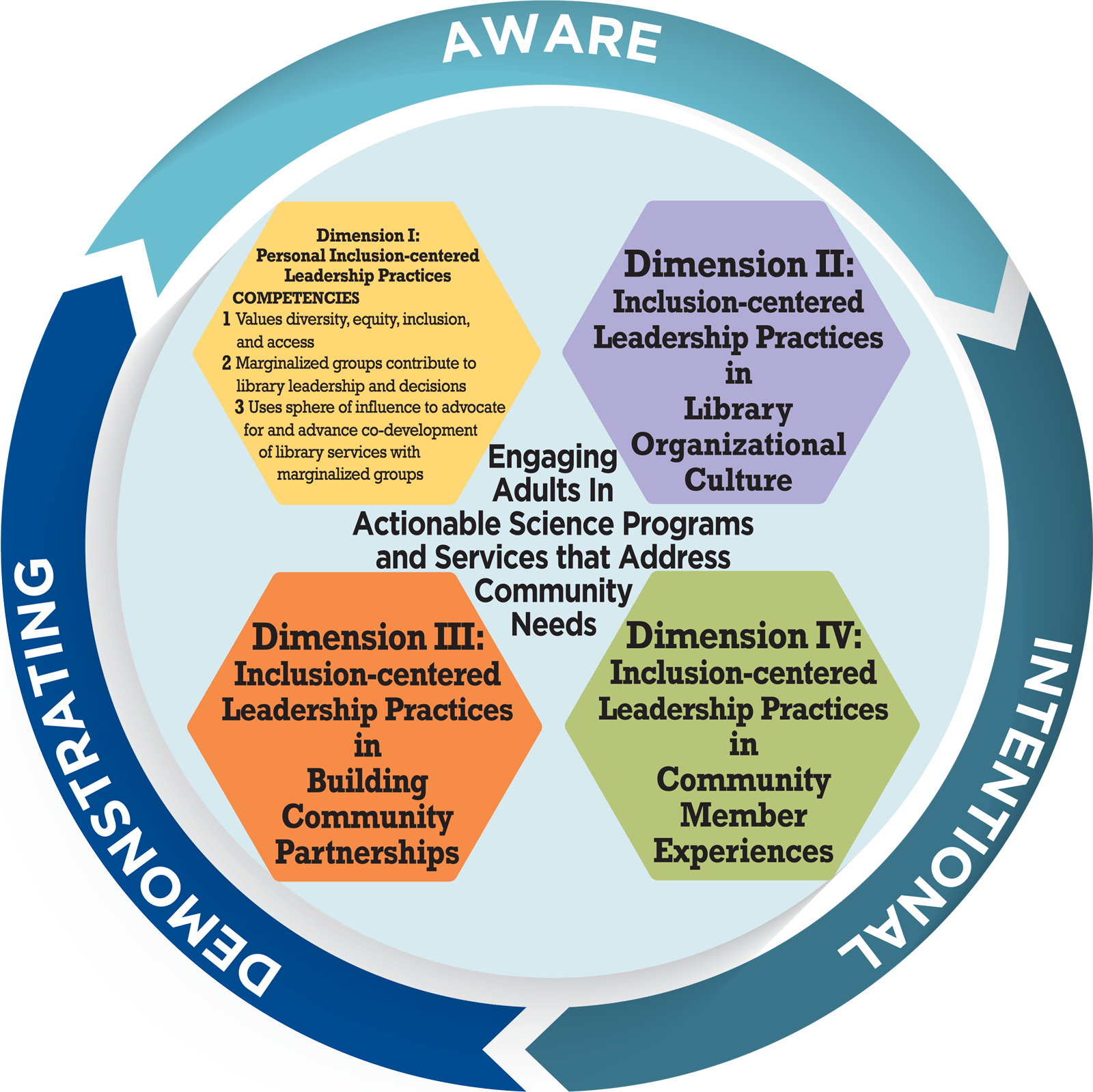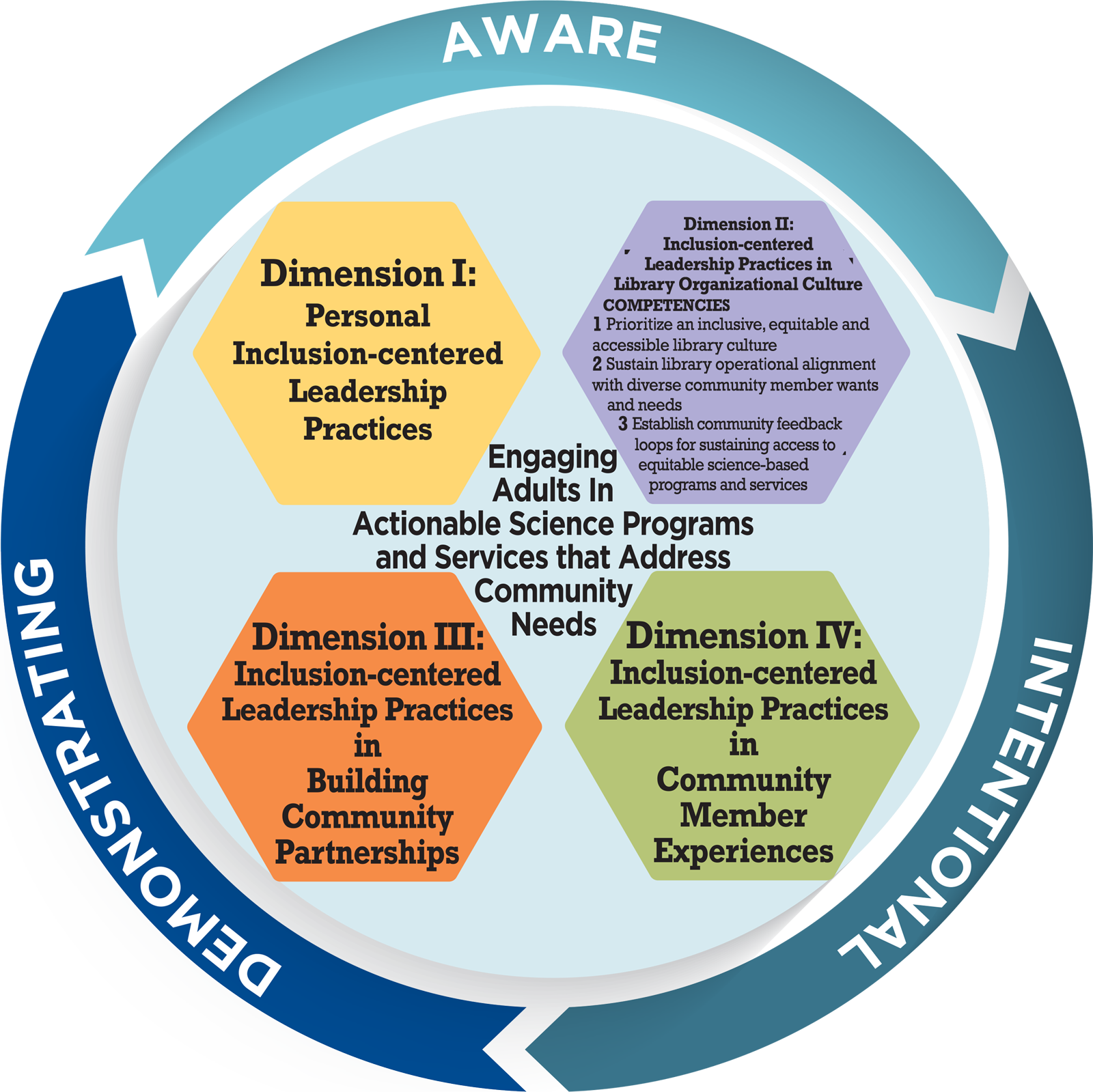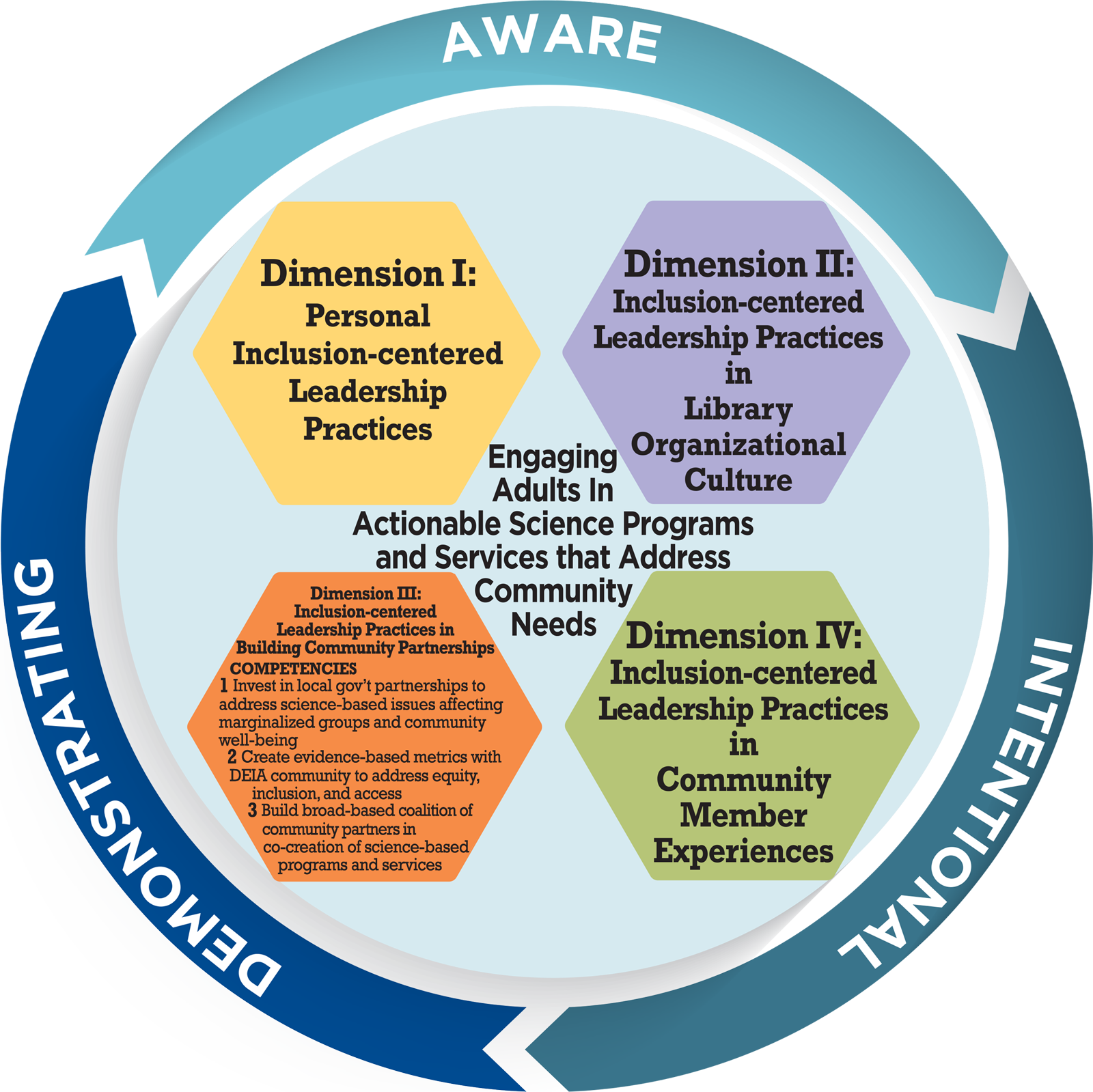The Serving Communities Framework and self-paced curriculum was created by 57 project team members and advisors from academic institutions and applied research, and practicing experts in library information and informal science and is premised on If library directors and managements have inclusion-centered leadership skills, attitudes, and practices, they are better able to partner with underserved communities around actionable science and provide the services needed to support the community’s ability to respond and build resilience. The creation of the curriculum was funded by the Laura Bush 21st Century Librarian grant (RE-250085-OLS-21) from the Institute of Museum and Library Services.
Serving Communities
About the Serving Communities Framework and Curriculum
Overview
Public libraries play an essential role in addressing community needs during difficult times serving as vital hubs for actionable science-oriented information, support and engagement. The Serving Communities Framework and curriculum is designed for library directors and management interested in building community resilience within their communities, especially in the face of emergency issues and challenges, such as: environment (e.g. climate change, earthquakes, hurricanes) and public health (e.g. the opioid crisis) to develop the competencies that enhance their library’s capacity to be more adaptive, inclusive, and proactive in services their communities, particularly those who are currently underserved.
Learning Objectives
The Serving Communities Framework and curriculum provides library directors:
a greater understanding of how the director’s operational decision-making, like budget and resource allocations may or may not serve all people and groups of their community;
greater knowledge and skills of how to position you and your library to be more inclusion-centered;
improved communication skills and habits to better articulate and know how to engage underserved communities; and
a greater understanding of the role that actionable science plays in community issues that impact underserved groups in the community you serve.
Getting Started
The Serving Communities curriculum is NOT designed for you to start at the beginning and work your way through each of the modules. Rather, the Serving Communities Framework and Curriculum are a set of tools for library directors to assess your inclusion-centered leadership capacities for community resilience through actionable science and for you to delve into specific leadership areas that you would like to enhance or get more information on.
Explore the Serving Communities Framework and Curriculum
Click on any of the Dimensions, and you will go directly to the page where you will discover the: 1) Framework Dimension, Proficiencies needed and the Indicators of Success needed to build leadership and operational capacity of community resilience; and, 2) corresponding Themes and Worksheets that will help you build greater skills and competencies in those specific areas that you would like to explore more deeply. Click here if you would like to view the entire Serving Communities Framework (PDF).
Sample the Serving Communities Framework and Curriculum
If you would prefer to sample an aspect of the Serving Communities Framework and Curriculum, we invite you to click on the links below for an example of the Framework focused on Community Member Experiences and a corresponding Worksheet that will help you assess your leadership skills.
Other Serving Communities Resources
Glossary for an inclusive Library and Creating A Shared Language Module
Another great resource for you to explore is the Serving Communities Glossary for an Inclusive Library (PDF). This Glossary is designed to help you be actively aware and purposeful for creating equitable access to actionable science information and services responsive to all community members. In addition, the Glossary and the Creating A Shared Language Module is designed for you to take a closer look at words that you may use on a daily basis. In both the Glossary and the Creating a Shared Language Module, you will have the ability to explore how to create a shared language with community members, become comfortable with uncomfortable conversations and determine if the language you are using promote inclusion or are being received as harmful by others.
Three Stories: Inclusion-centered Leadership In Action
What is both challenging and exciting about intentional cultural change efforts is that they are carried out by real people. People who can be intuitive, smart, sensitive, adaptive, visionary, collaborative, honorable and so much more, while also being stubborn, scared, and intractable. Library directors are required to respond to myriad supports and barriers. The Three Stories: Inclusion-centered Leadership in Action (PDF) highlights the leadership lessons learned and the reflection of three senior library leaders and key community partners in their work as they strive to create sustainable inclusion-centered libraries.
For More Information
For more information, questions or interested in hosting a virtual or in-person workshop on any part of the Serving Communities Framework and Curriculum, please email Cynthia Randall, Executive Director at cynthia.randall@cornerstonesofscience.org.
Serving Communities Webinars
Starting in January, Cornerstones of Science will be hosting a webinar, that explores a core theme, each month, including:
- Serving Communities Framework for Inclusion-centered Library Leadership Development
- Inclusion-centered Leadership Practices in Library Organizational Culture
- Building Actionable Science Community Partnerships
- Engaging Adults in Actionable Science Programs and Services that Address Community Needs
- Creating a Shared Language with Diverse Community Groups
Just to name a few. A calendar of events will be posted shortly.






